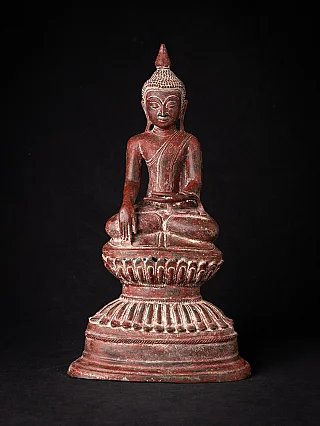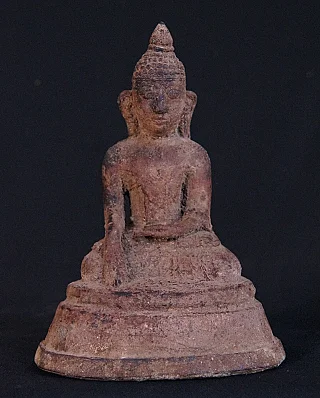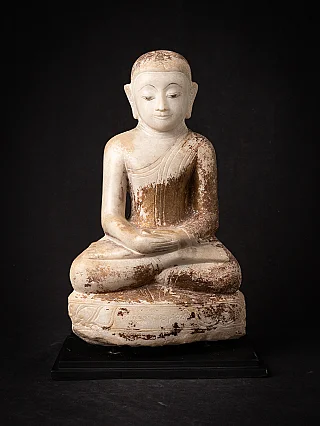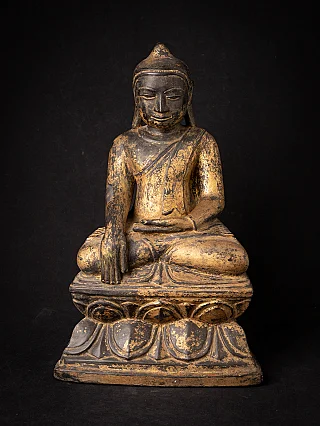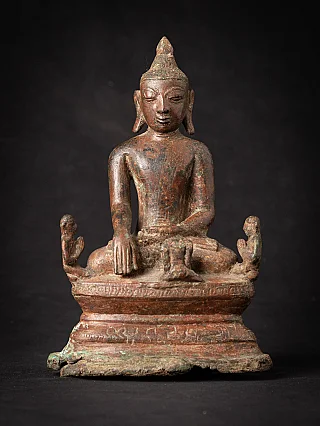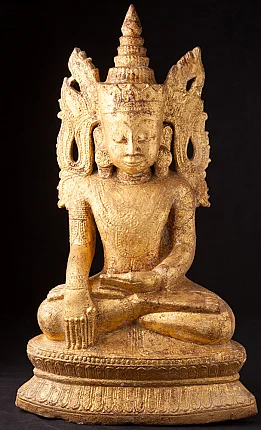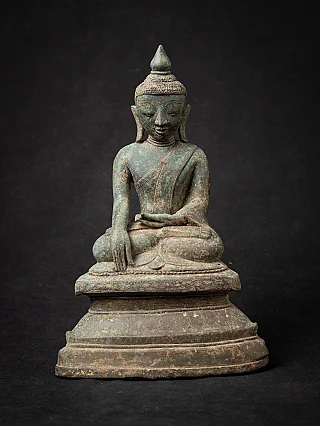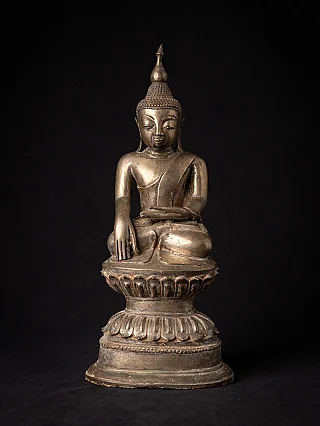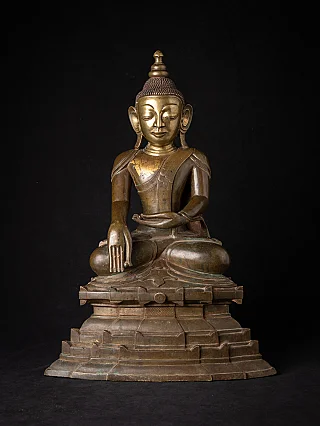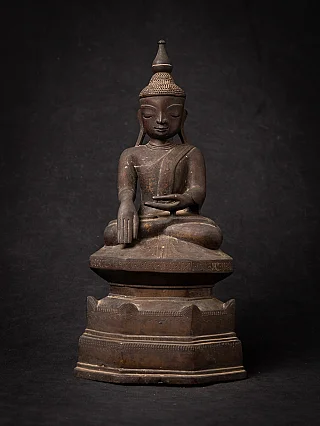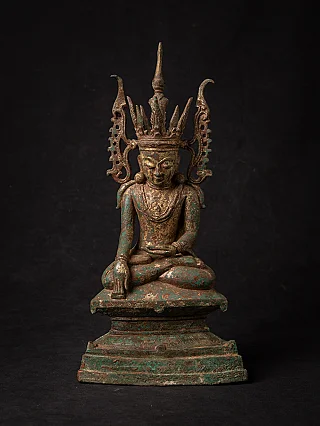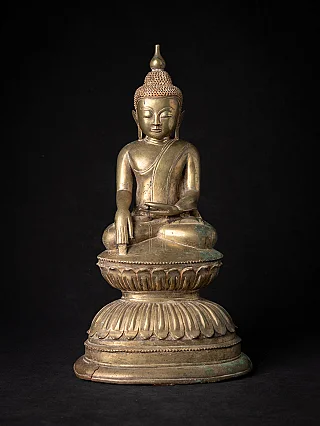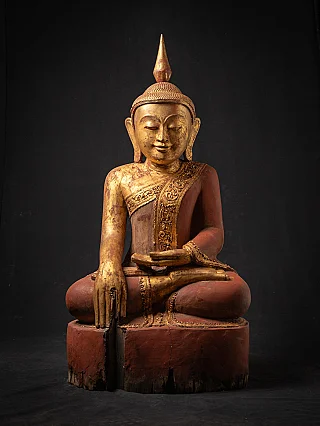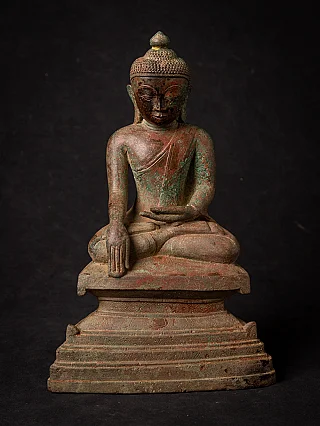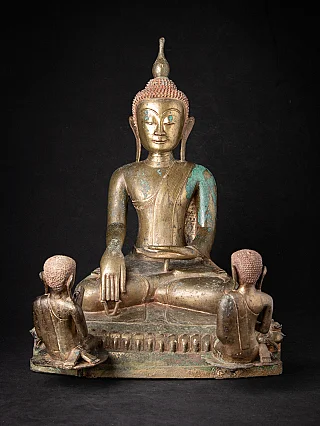Ava period: 1618 - 1789

Ava, also known as Innwa or Ratanapura (City of Gems), is a historically significant city situated south of Amarapura on the banks of the Ayeyarwady River, approximately 15 kilometers south of Mandalay. Founded in 1364 A.D. by King Thado Minpya, who was just 19 years old at the time, Ava served as the capital of Burma for several centuries. The city's artistic achievements, particularly in creating Buddha statues, reflect its rich cultural heritage and the fusion of art and spirituality that defined the era.
History

The first Ava period lasted 233 years and was marked by the reign of a line of 20 kings. It was followed by a second Ava period that lasted over 150 years under ten kings. This made Ava the longest-serving capital in Burmese history. Although it faced invasions and changes in leadership, including a brief restoration during the 19th-century Konbaung dynasty, Ava's influence remained significant throughout Burmese history.
In 1597 A.D., King Nyaungyan made Ava a capital for the second time, commissioning a new golden palace and the construction of notable structures like the Kaungmudaw Pagoda. However, in 1752, Ava was invaded and destroyed by the Mon from the south, reducing the once-thriving capital to a small town or large village.
Characteristics
Ava Buddha statues are easily recognizable by their distinctive features. They typically have large foreheads and oval-shaped faces with pointed chins. The eyebrows are elegantly curved, while the eyes are often depicted in a meditative gaze, embodying the serenity of Buddhist teachings. The straight, low nose and small, slightly protruding lips further enhance the unique facial characteristics of these statues.
The torsos of the Ava Buddha statues are well-built, similar to the earlier Toungoo style, showcasing a continuity of artistic traditions. The robes are traditionally draped over the left shoulder, reflecting simplicity and humility, central Buddhist themes.
Symbolism

The Ava Buddha statues carry deep spiritual significance. They represent not only the artistic skills of the artisans but also the cultural and religious values of the time. Each statue serves as a reminder of the Buddha's teachings, promoting virtues such as compassion, mindfulness, and enlightenment. The careful craftsmanship and attention to detail illustrate the artisans' reverence for their subject matter, creating beautiful and meaningful pieces.
Evolution and Influences
The artistry of the Ava period reflects a blend of influences from previous periods, notably the Toungoo style, which paved the way for future artistic developments in Burmese sculpture. The use of various materials—such as wood, bronze, lacquer, and marble—demonstrates the adaptability and innovation of artists during this period.
The Ava Buddha statues signify a transition in Burmese art, where craftsmanship became refined, and styles evolved in response to the changing sociopolitical landscape. Influences from neighboring cultures and dynasties further enriched the artistic landscape, allowing for a unique expression of Burmese identity through art.
Importance
Ava Buddha statues are invaluable cultural artifacts that tell the story of Burma's resilience and artistic heritage. They are not merely decorative objects; they embody the Burmese people's spiritual devotion and cultural identity. The preservation of these statues is crucial for maintaining the cultural heritage of Ava, allowing future generations to connect with their history.
These statues hold an essential place in the collective memory of the Burmese people as reminders of an era when Ava thrived as a capital. By studying and appreciating Ava Buddha statues, we gain insight into a vibrant period of Southeast Asian history where art flourished harmoniously with faith and governance.
In conclusion, the importance of Ava Buddha statues extends beyond their aesthetic appeal; they represent a rich tapestry of cultural, historical, and spiritual narratives that continue to inspire and uplift those who encounter them.
Share this page























